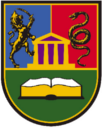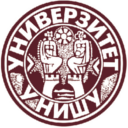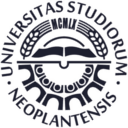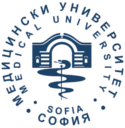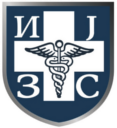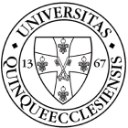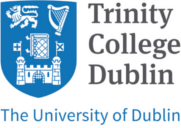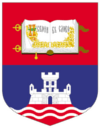P1 Coordinating organization – University of Belgrade, Serbia
The University of Belgrade founded in 1808 is providing the vibrant educational and research environment for more than 80 000 students and more than 3 500 academic staff members. It is currently listed as rank 301-400 on the Academic Ranking of World Universities list. Health professionals education is provided by the School of Medicine, Faculty of Dental Medicine and Faculty of Pharmacy. All three schools provide undergraduate education, as well as postgraduate doctoral and specialization studies in a number of disciplines. School of Medicine academic staff involves 881 staff members, majority of which is engaged as clinicians in the Clinical Centre of Serbia and other clinical practice sites. The School delivers two study programmes: (1) Doctor of Medicine (6 years integrated study programme; 360 ECTS; 640 students per year) and (2) Graduate Nurse (4 years curriculum; 240 ECTS; 24 students per year). School of Dental Medicine academic staff involves 146 staff members; Doctor of Dental Medicine curriculum is a 6 years integrated study programme (360 ECTS; 240 students per year). Faculty of Pharmacy academic staff involves 160 staff members. Two study programs are delivered: (1) Master of Pharmacy (5 years integrated study programme; 300 ECTS; 250 students per year) and Master of Pharmacy – Medical Biochemist (5 years integrated study programme; 300 ECTS; 75 students per year).
P2 University of Kragujevac, Serbia
The University of Kragujevac was founded in 1976, with its 12 faculties. It is now a modern educational and research centre embracing almost all major areas of teaching and research. The academic and professional studies are based on approved and accredited study programs. It takes active part in the European programs as a grant holder and partner in many projects. Health professionals education is provided by the Faculty of Medical Sciences which involves 294 academic staff. The school provide undergraduate education, as well as postgraduate doctoral and specialization studies in the number of disciplines. Faculty of Medical Sciences delivers three undergraduate study programmes: (1) Doctor of Medicine (6 years integrated study programme; 360 ECTS; 90 students per year integrated academic studies), (2) Doctor of Dental Medicine (300 ECTS; 24 students per year) and (3) Master of Pharmacy (5 years integrated study programme; 300 ECTS; 85 students per year).
P3 University of Niš, Serbia
The University of Niš is a state educational and research higher education institution founded in 1965. At present, the University comprises 13 faculties. It is providing educational and research environment for about 30.000 students and more than 1500 academic staff members. Education for health professionals is provided by the Faculty of Medicine through three integrated academic study programmes: (1) Doctor of Medicine (6 years integrated study programme; 360 ECTS; 190 students per year), (2) Doctor of Dental Medicine (5 years integrated study programme; 300 ECTS; 60 students per year) and (3) Master of Pharmacy (5 years integrated study programme; 300 ECTS; 70 students per year). Faculty of Medicine, University of Niš delivers postgraduate doctoral and specialization studies in a number of disciplines. Faculty of Medicine academic staff involves 350 staff members, the majority of which is engaged as clinicians in the Clinical Centre Niš and other health care facilities.
P4 University of Novi Sad, Serbia
The University of Novi Sad founded in 1960 today comprises 14 faculties located in the four major towns of the Autonomous Province of Vojvodina. The Faculty of Medicine, as part of the University of Novi Sad, had its’ 50th Anniversary in 2010. Integrated studies in Medicine, Dentistry and Pharmacy are organized in English language during twelve (Medicine) or ten (Dentistry and Pharmacy) semester study programmes. Nowadays, teaching activities are organized in well established learning environment at the Institutes of premedical basic sciences and basic medical sciences, Institute of Public Health, 29 clinics and 8 regional health centers for education in clinical medicine. Since the establishment, more than 7000 students have graduated from Faculties of Medicine, Dentistry and Pharmacy and they represent our Institution all over the world as successful professionals, researchers and scientists. Faculty of medicine involves more than 700 staff members, majority of which is engaged as clinicians in the Clinical Centre of Vojvodina and other clinical practice sites.
P5 Trinity College Dublin, Ireland
Trinity College Dublin founded in 1592 is ranked 71st in the world and 48th in Europe. The Faculty of Health Sciences comprises the Schools of Dental Science, Medicine, Nursing and Midwifery and Pharmacy and Pharmaceutical Sciences. The School of Pharmacy and Pharmaceutical Sciences, is ranked first in Ireland, in the top 40 in Europe and in top 100 in the world. It offers a B.Sc. (Pharmacy) degree under the relevant EU Directives. The School runs postgraduate research PhD programmes and taught M.Sc. courses in community pharmacy, hospital pharmacy and the pharmaceutical industry. The School of Dental Science and the Dublin Dental University Hospital (DDUH) is Ireland’s preeminent academic centre for dentistry. There are over 400 students across dental science, dental hygiene, dental technology and dental nursing as well as postgraduate programmes. There is interprofessional collaborative practice in the curriculum with colleagues from the School of Pharmacy and the School of Medicine. The discipline of Physiotherapy within the School of Medicine delivers undergraduate programmes that lead to a BSc (Physiotherapy) through the four year undergraduate programme and two taught postgraduate programmes; the MSc in Respiratory Physiotherapy and MSc in Cardiac Rehabilitation and Prevention.
P6 Medical University of Sofia, Bulgaria
The Medical University of Sofia is established since near 100 years and is the leader in health professionals education in Bulgaria. In the structure of the University are included Faculty of Medicine, Faculty of Pharmacy, Faculty of Dental Medicine, Faculty of Public Health, Medical College, Regional affiliates in Vratza Bulgaria, Cyprus, and Switzerland. The Medical University engage approximately 1 000 of highly qualified academic and research staff. The Medical University of Sofia is responsible for the undergraduate and postgraduate education of medical doctors, pharmacists, dental medical doctors, nurses, health care managers etc. There are 11 874 publications indexed in Scopus scientific database published by the researchers from the Medical University of Sofia. The research staff of the University is also participating as main partner or associate partner in many EU funded projects, EuNetha projects, and Erasmus projects. Erasmus office at the University helps in maintaining regular bilateral contacts with almost all European countries.
P7 Faculdade de Farmácia, Universidade de Lisboa (FFULisboa), Portugal
The University of Lisbon was created in July 2013, as a result of the merger of Universidade Técnica de Lisboa and Universidade de Lisboa (tracing its origins to the establishment of the Portuguese University in 1290). University of Lisbon has 18 schools and over 100 research units, around 50 000 students, 4 000 lecturers, 2 500 non-academic staff and 400 degree courses. Faculty of Pharmacy (FFUL) and its Scientific Unities have 10 Full professors, 22 Associate Professors, 62 Auxiliary Professors, 2 Assistants, 15 Investigators and 60 Administrative staff. FFULisboa has 1 275 students in the Integrated Master of Pharmaceutical Sciences, 179 Master Students and 86 PhD students. Integrated Master of Pharmaceutical Sciences program includes six month practical training performed in public and hospital pharmacies.
FFUL is a highly regarded research-oriented institution in Pharmaceutical Sciences, ranked as first among the Schools of Pharmacy in Portugal, provides programs of excellence in scientific and professional areas. FFULisboa hosts the Research Institute for Medicines (iMed.ULisboa), ranked by FCT as Very Good (21 out of 25 points) that fosters basic and translational research, at the interface between biology/chemistry/pharmaceutics, based on the drug discovery and development paradigm, including regulatory science approaches.
P8 University of Pécs, Hungary
The University of Pécs with its 22 000 students, 1 600 lecturers and 10 faculties is one of the largest higher education institutions in Hungary. The history of higher education in Pécs dates back to 1367. Health professionals education is provided by the Faculty of Medicine and Faculty of Health Sciences. Both schools provide undergraduate education, as well as postgraduate doctoral and specialization studies in a number of disciplines. The Faculty of General Medicine is the only internationally recognised centre for medical (M.D., 6 years programme, 360 credits), dental (D.M.D., 5 years, 300 credits) and pharmacy (pharm.D., 5 years, 300 credits) education in the Trans-Danubian region of Hungary. Faculty of Health Sciences academic staff involves 150 staff members. The following BSc programmes are available: Nurse, Dietitian, Physiotherapist, Ambulance Officer, Midwife, Laboratory and Imaging Analyst for Medical Diagnostics Specialities, Public Health Inspection, Health Visitor (4 years programmes, 240 ECTS) and Health Care Management Specialities (3.5 years, 210 ECTS). The Faculty offers several M.Sc. programmes: M.Sc. in nursing, public health, health care management (1.5 years, 90 ECTS), Nutritional Sciences (2 years, 120 ECTS). The Clinical Centre is one of the largest health care providers in Hungary.
Associated Partner
Institute of Public Health of Serbia
Institute of Public Health of Serbia “Dr Milan Jovanović Batut” was established on the Republic level and represents the national expert institution for Public Health, which provides advice, support and guidance for the Serbian government and all departments for public health and conducts independent researches on issues related to public health in Serbia. The activity of the Institute is defined by the Health Care law which under public health considers realization of public interest by creating conditions for the preservation of public health through organized comprehensive social activity aimed at preserving the physical and mental health, and environmental protection, and prevention of risk factors for disease and injuries, which is accomplished by application of health technologies and measures aimed at promoting health, preventing disease and improving quality of life. Today, the Institute of Public Health of Serbia, along with 23 district institutes of public health has played a leading role in the system of public health in the Republic of Serbia, or in carrying out public health functions and services.



